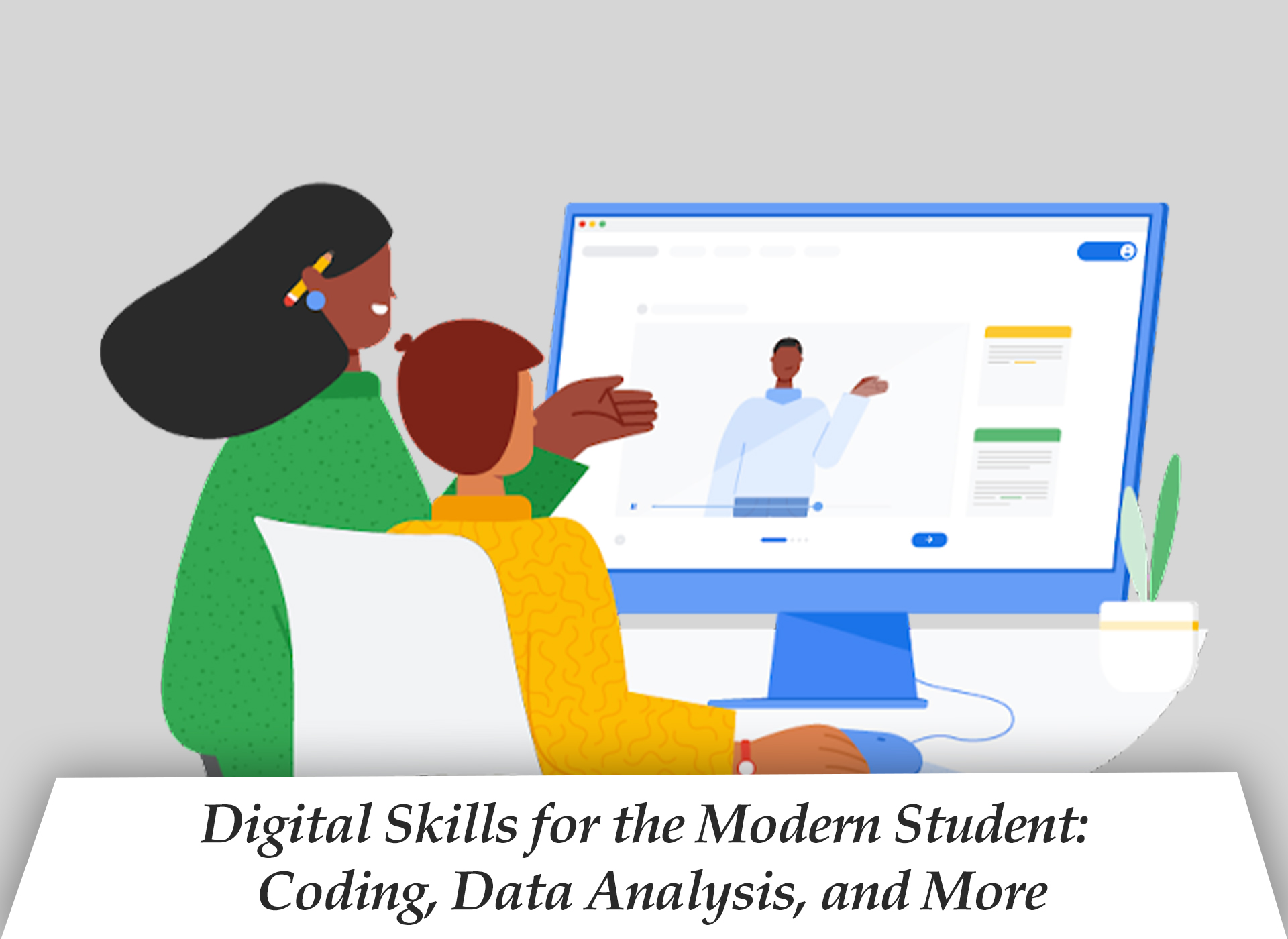In today’s digital age, equipping students with essential digital skills is paramount. At Gyan Vihar School, a leading CBSE school in Jaipur, we understand the importance of preparing students for the rapidly evolving tech-driven world. In this blog post, we will explore the critical digital skills that modern students should acquire, ensuring they are well-equipped for success in the 21st century.
- Coding: The Language of the Future
Why learn to code?
- Problem Solving: Coding fosters critical thinking and problem-solving skills.
- Creativity: Students can express their creativity through coding by creating websites, apps, and games.
- Career Opportunities: Proficiency in coding opens doors to various career paths in technology.
How to introduce coding:
- Early Exposure: Start teaching coding basics at an early age with age-appropriate platforms.
- Structured Learning: Enroll students in coding courses or clubs that offer a structured curriculum.
- Real-World Projects: Encourage students to work on coding projects that solve real-world problems.
- Data Analysis: Unleashing the Power of Information
Why learn data analysis?
- Informed Decision-Making: Data analysis helps students make decisions based on evidence.
- Job Market Demand: Data analysis skills are in high demand across industries.
- Personal Growth: It fosters critical thinking and improves attention to detail.
How to introduce data analysis:
- Data Literacy: Teach students to interpret graphs, charts, and data sets.
- Hands-On Projects: Assign projects that involve data collection, analysis, and presentation.
- Data Tools: Familiarize students with data analysis software like Excel and Python.
- Digital Literacy: Navigating the Online World Safely
Why learn digital literacy?
- Online Safety: Students learn to protect themselves from online threats.
- Critical Evaluation: They can assess online information for credibility.
- Communication Skills: Digital literacy enhances online communication skills.
How to introduce digital literacy:
- Internet Safety: Teach students about online privacy, secure passwords, and avoiding scams.
- Media Literacy: Guide them in analyzing online content for bias and accuracy.
- Effective Communication: Promote responsible and respectful online communication.
- Problem Solving: The Core of Digital Competency
Why learn problem solving?
- Versatility: Problem-solving skills are applicable across disciplines.
- Adaptability: Students can tackle new and complex challenges effectively.
- Innovation: Problem solvers are more likely to develop creative solutions.
How to nurture problem-solving skills:
- Case Studies: Present students with real-world problems and ask for solutions.
- Teamwork: Encourage group problem-solving exercises to foster collaboration.
- Critical Thinking: Promote critical thinking by challenging assumptions and exploring multiple solutions.
- Digital Citizenship: Responsible Online Behavior
Why learn digital citizenship?
- Ethical Behavior: It encourages students to behave ethically and responsibly online.
- Online Reputation: Digital citizenship emphasizes the importance of maintaining a positive online presence.
- Respect: It promotes respectful online interactions with peers and strangers.
How to instill digital citizenship:
- Online Etiquette: Teach students about online manners and cyberbullying prevention.
- Privacy Awareness: Help them understand the consequences of sharing personal information.
- Role-Playing: Engage in scenarios to discuss appropriate online behavior.
In a world driven by technology, CBSE schools in Jaipur, including Gyan Vihar School, recognize the vital role of digital skills in shaping the future of students. By introducing coding, data analysis, digital literacy, problem-solving, and digital citizenship into the curriculum, we empower students to thrive in the digital age.
These skills are not just essential for academic and career success but also for responsible and ethical participation in the online world. As educators, parents, and mentors, it is our collective responsibility to equip students with the digital skills they need to navigate the complexities of the modern world with confidence and competence.







